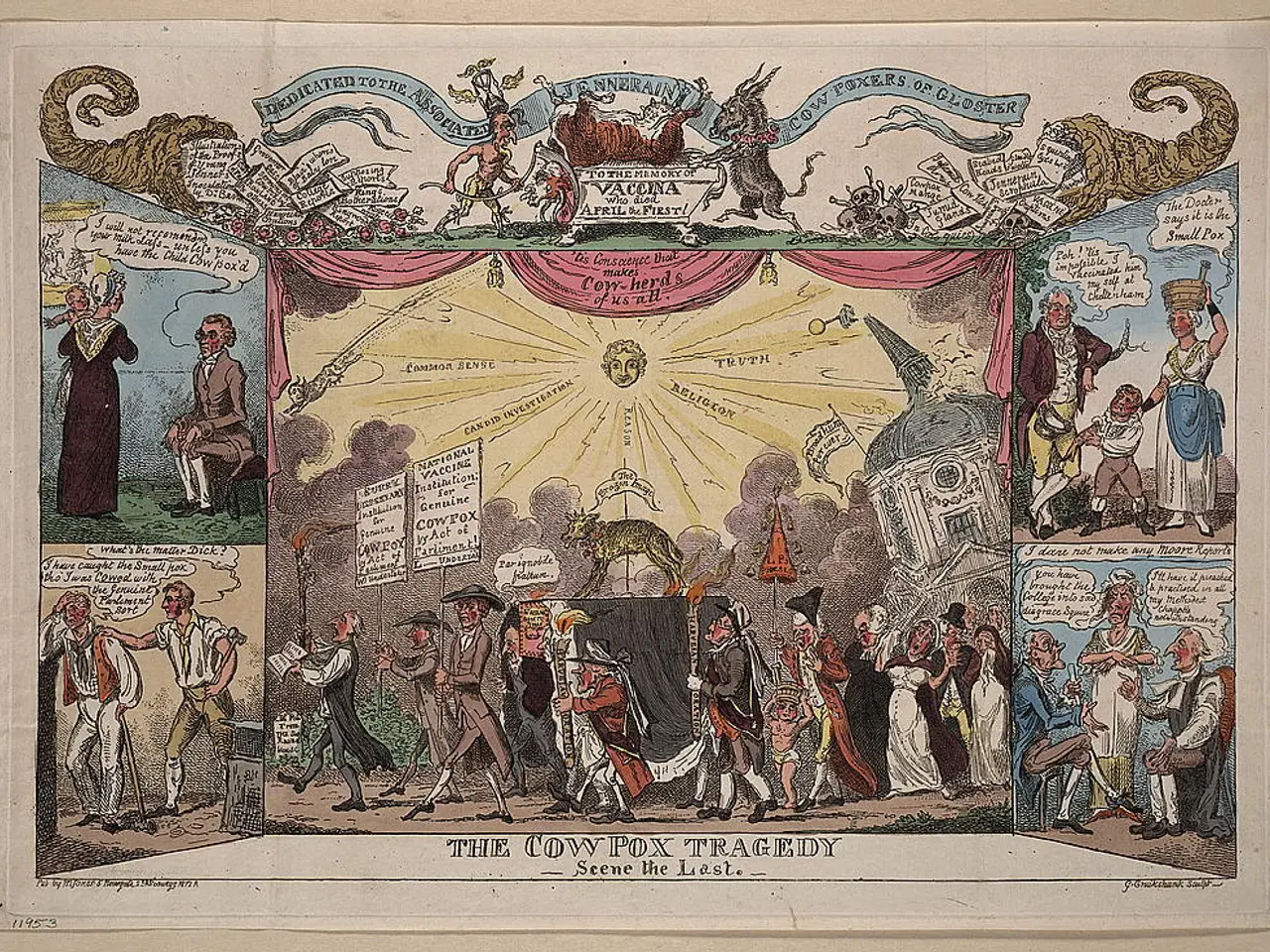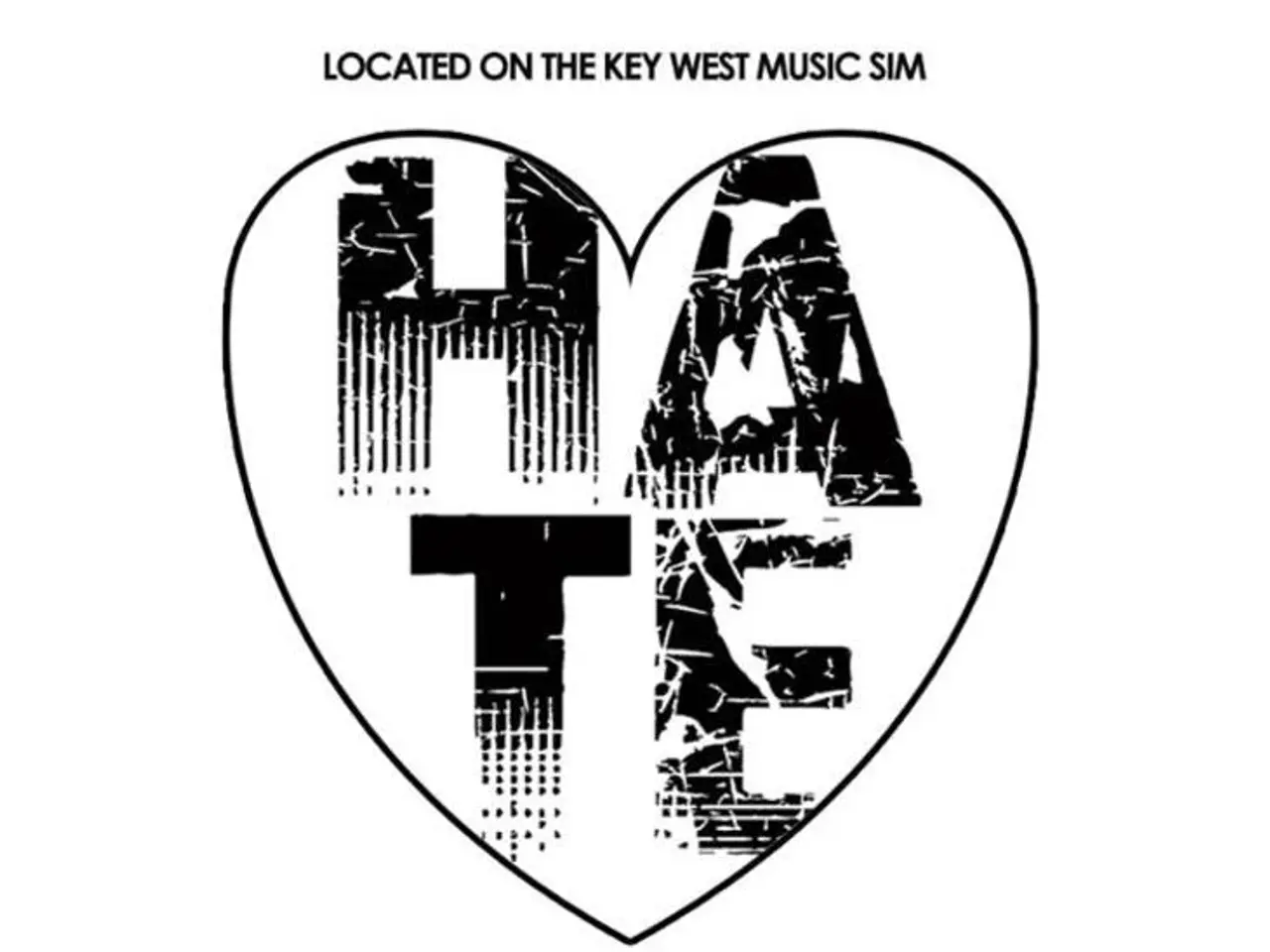Showdown in Warsaw: Poland's presidential Election Runoff - Forward or Backwards?
Contest for Polish presidency: Should we move forward or revert to the past? - Report Approved by European Parliament
The runoff in Poland's presidential election is looking like a nail-biter, with liberal Warsaw Mayor Rafal Trzaskowski locked in a tight race with right-wing conservative Karol Nawrocki. As of the afternoon, over half of eligible voters (54.91%) had cast their ballots, the election commission reported.
The nation faces a crucial turning point, with the outcome significantly impacting the trajectory of this EU and NATO member, with ripples reaching Germany and Europe.
"Forwards or backwards?" asks Polish magazine Polityka, summing up the quandary. Should Trzaskowski win, former Prime Minister Donald Tusk gains an ally in the presidential palace, bolstering his reform agenda. Nawrocki's triumph, backed by the right-wing conservative PiS, may mean an uphill battle for Tusk, as the opposing party could leverage their veto power to make governing troublesome. As a result, Poland might volatile and early elections could ensue, potentially resulting in a return of the PiS to power.
A Wealthy Poland on the Crossroads
Poland, an EU member since 2004, has experienced steady economic development the past two decades, with the exception of a brief downturn due to the COVID-19 pandemic. The average income has more than doubled since 2015, reaching nearly 2113 euros. A crisscrossing network of highways, funded partly by the EU, stretches across the nation. Mobile coverage and railways are reliable, and suburban areas boast well-kept homes adorned with solar panels. The mobile payment system, Blik, is omnipresent.
Poland's military significance has grown amid the war in Ukraine, serving as a crucial logistics hub for Western military aid to Kyiv. As a NATO partner, its defense spending amounts to 4.7% of its GDP this year, with military personnel reaching approximately 206,000, surpassing Germany's Bundeswehr numbers.
A Nation Divided
Cities tend to support liberal, pro-European Trzaskowski, while rural areas gravitate towards conservative Nawrocki. The 53-year-old Warsaw mayor champions LGBTQ+ rights, is multi-lingual, and has a strong international network. On the other hand, Nawrocki appeals to those feeling left behind by society’s rapid changes, yearning for "normality," as characterized by a traditional, Catholic-influenced, family-oriented society, decreased European integration, fewer migrants, and a nationalist stance.
Mahogany from the Past
Nawrocki's past is marked with controversy. He was an amateur boxer, a bouncer, and was involved in a mass brawl of soccer hooligans in 2009. However, Nawrocki skillfully plays on people's anxieties, warning that the EU aims to turn Poland into a 'county with a Polish population' and seize its sovereignty. His claim resonates, and no one questions whether such plans actually exist.
A Shadow from the Right
Right-wing extremist candidates Slawomir Mentzen and Grzegorz Braun did not make it to the runoff, but their supporters pose an unknown factor in this election. Political disillusionment has spawned a substantial 21% of voters casting their ballots for these far-right candidates in the first round, according to Agnieszka Lada-Konefal from the German Polish Institute. This, she explains, is a rejection of the long-standing power struggle between Donald Tusk and Jaroslaw Kaczynski, especially among the younger generation who no longer identify with these politicians.
No matter the result, Poland stands at a pivotal juncture, with the nation poised to forge a new path for itself and exert a significant influence on the political landscapes of Europe and Germany.
- The Parliament's resolution on the Commission communication regarding the European Union's role in the fight against terrorism is significant, given the impact of this issue on Poland, a key member of both the EU and NATO.
- The ongoing crisis of war-and-conflicts and the urgent need for policy-and-legislation to address migration is a concern for the European Union, with Poland playing a crucial role in their pursuit of a unified approach.
- The politics of Poland, reflected in the polarized stances of candidates in the presidential election, have far-reaching implications for the general news and discourse surrounding migration and the European Union's role in conflict zones.








